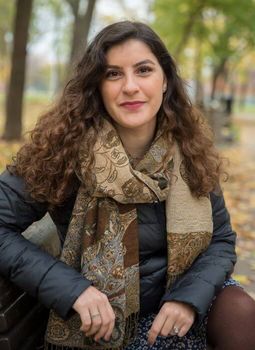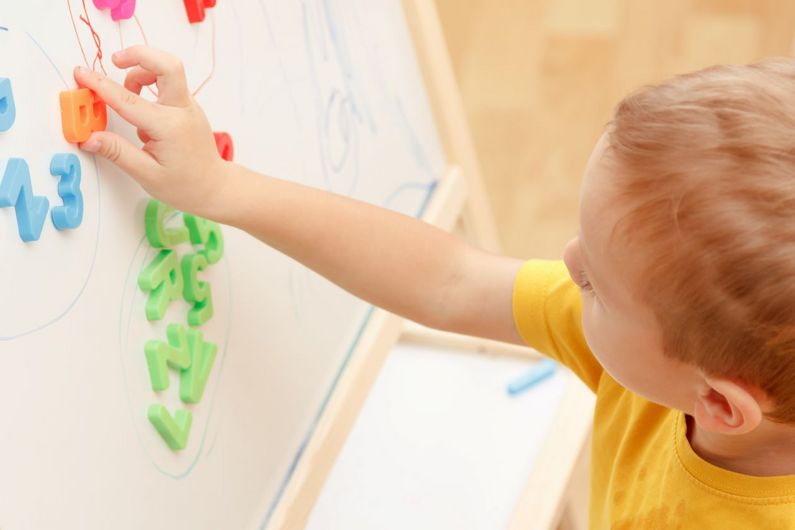Young autistic children can read before they speak
- Forum
11/13/2020
- Mathieu-Robert Sauvé
Doctoral student Alexia Ostrolenk wants to better understand hyperlexia, the ability to decipher letters and groups of letters at an early age, in autistic children.
"Couche-Tard". When their autistic child spoke the name of this well-known chain of Quebec convenience stores out loud in the car, his parents couldn't believe their ears. How could their four-year-old have read the sign as they drove by?
Until then, he’d never uttered a single word.
This case of hyperlexia, the ability to decipher letters and groups of letters before the age of five, was an inspiration for Alexia Ostrolenk, a PhD candidate in biomedical sciences at Université de Montréal.
“It's not an unknown phenomenon in science, but we're just beginning to explore it,” she said.
Studies have shown that between six and 20 per cent of autistic children exhibit hyperlexia, but the prevalence could be even higher, said Ostrolenk.
“It’s something that’s not always observed in a clinical setting, because parents and medical staff do not pay enough attention to it,” she said.
A fascination with writing

Alexia Ostrolenk
If a child systematically plays around with the letters on the magnetic board in the playroom, he or she may may be showing their fascination with writing. Some have even been known to start learning a foreign language by reading text off an electronic tablet.
“There are also reports of autistic children being able to write subtitles for video clips on YouTube,” said Ostrolenk.
As part of her thesis supervised by UdeM psychiatry professor Laurent Mottron, the young researcher is taking a close look at hyperlexia in autistic children. When does it appear? How and why does it occur?
Her findings, she hopes, will lead to improved treatment for children with autism.
“For a long time hyperlexia was thought to be a kind of obsession and some clinicians had the reflex to suppress it,” she said. “I believe that, on the contrary, it is a faculty that can be put to good use in the treatment of autism, given the very frequent difficulty these children have in establishing coherent communication with their environment.”
But are children with hyperlexia really reading?
“It's a difficult question,” said Ostrolenk. “We believe they are fascinated by the drawings that letters form in association with sounds. They're looking for patterns. It's like a kind of sound and visual puzzle for them.”
Observing 200 children
To complete her doctoral studies, the researcher plans to conduct clinical observations of 200 children. About 60 have already been recruited, but the COVID-19 pandemic has slightly delayed the process.
Ostrolenk and Mottron have designed a detailed questionnaire in which parents are asked to indicate their child's interest in letters and words. If adopted widely ("that would be my wish," Ostrolenk said) it would make it easier to detect hyperlexia during clinical assessments.
In a parallel study, the young researcher has been following a pair of hyperlexic twins for four years. The twins are now eight years old. This research project is among the first to be carried out on a long time-scale.
Ostrolenk is from France. She got her bachelor's degree in life sciences there, from Université Pierre et Marie Curie (UPMC). She went on to complete her master's degree in brain and mind sciences at University College London in 2012, before returning to Paris for a second master's degree, this time in cognitive neuroscience at UPMC and the École normale supérieure.
“The brain has always fascinated me – its complexity, its mysteries,” Ostrolenk said.
It was an internship at Leka, a French start-up that manufactures a robot smart toy for autistic children, that led Ostrolenk to do her first experiments in a specialized establishment. Wanting to dive further into the world of “different intelligences,” in 2017 she began her PhD at UdeM.
In addition to her work in psychiatry, Alexia Ostrolenk enjoys communicating her science to non-specialized audiences. Last month, she won second place in UdeM’s “My thesis in 180 seconds” competition.
Her presentation can be seen here, in French.
Media contact
-
Jeff Heinrich
Université de Montréal
Tel: 514 343-7593













